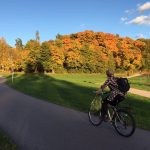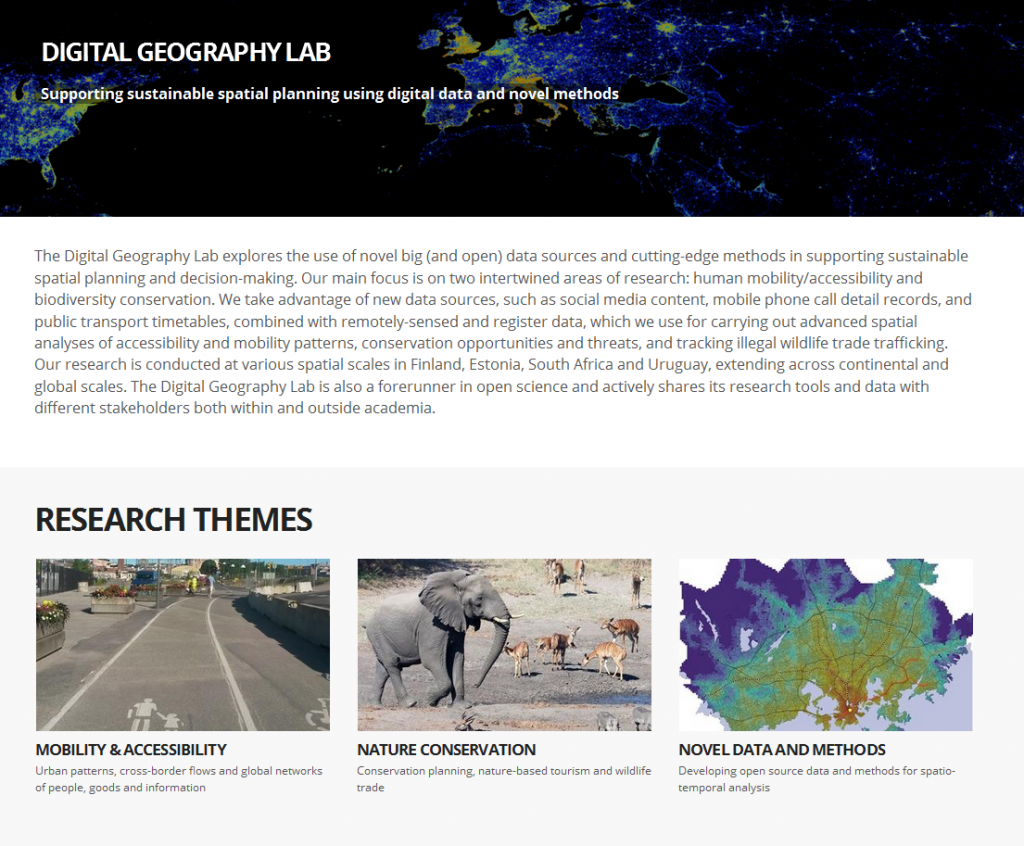Novel data sources for accessibility modelling – Henrikki Tenkanen’s PhD course
November 2017 – Geography Master’s Programme
Course description
This course builds around Henrikki Tenkanen’s PhD-thesis titled “Dynamic Analysis of Accessibility and Mobility – Novel Approaches to Support Planning with Open Data and Tools“.
It will offer a possibility to be a part of the PhD defense process and to learn a lot about state of the art accessibility modelling and mobility analyses. The course consists of several meetings, course readings and discussions. In the kick-off meeting the course practicalities will be introduced. Minisymposium on accessibility brings together researchers and planners to discuss accessibility modelling using novel data sources. Shadow Defense works as a final rehearsal for Henrikki following the structure of the actual defense but with students being the opponents. The culmination of the course will be the actual defense with prof. Robert Weibel from the University of Zurich working as the opponent. Thoughts and ideas will be wrapped up in the last meeting of the course on the following week of the defense.
Schedule:
- 3.11. klo 10-12 (Physicum D112), Introduction to the course
- 9.11. klo 12:30-16 (Physicum D101) Mini-symposium on Accessibility analyses using novel data sources
-
- See the event page and register here
- 14.11. 12-16 (Physicum A115), Shadow defense with students making questions to Henrikki
- 17.11. 12-16 (Physicum D101), The PhD defense
- 21.11. at 10-12 (Chemicum A128), Wrap up & discussion
Credits
This 2 credit point pop-up -course can be included to the course GEOG-328 Topical issues in geoinformatics (5 cr), or it can be one task in the GEOG-406GIS in Society course. Individual pieces (shadow defense, symposium, defense) can also be included in the GEOG_G338 Advanced Seminar of Geoinformatics. Please note, however, that participation can be counted only in one course!
Registration
The registration to the course is done by enrolling to this Moodle area: https://moodle.helsinki.fi/course/view.php?id=26393#section-0
The registration key is “Henkasta_tohtori!”
Course completion
Participation to every course meeting is obligatory. Students will also need to read the provided course materials (Henrikki’s thesis, including a summary part and 5 scientific articles + 4-5 other scientific articles by the opponent and the presentators of the minisymposium).
Before the shadow defense students form journal groups. Each group chooses 2 articles from the thesis of which they discuss together and form questions that are presented to Henrikki in the shadow defense. The group reports their questions and findings how these questions were answered.
Evaluation
The course is evaluated on a scale pass-fail
Course Teachers
Henrikki Tenkanen, Tuuli Toivonen, Elias Willberg, and all participants!
Contacts
tuuli.toivonen@helsinki.fi & elias.willberg@helsinki.fi



